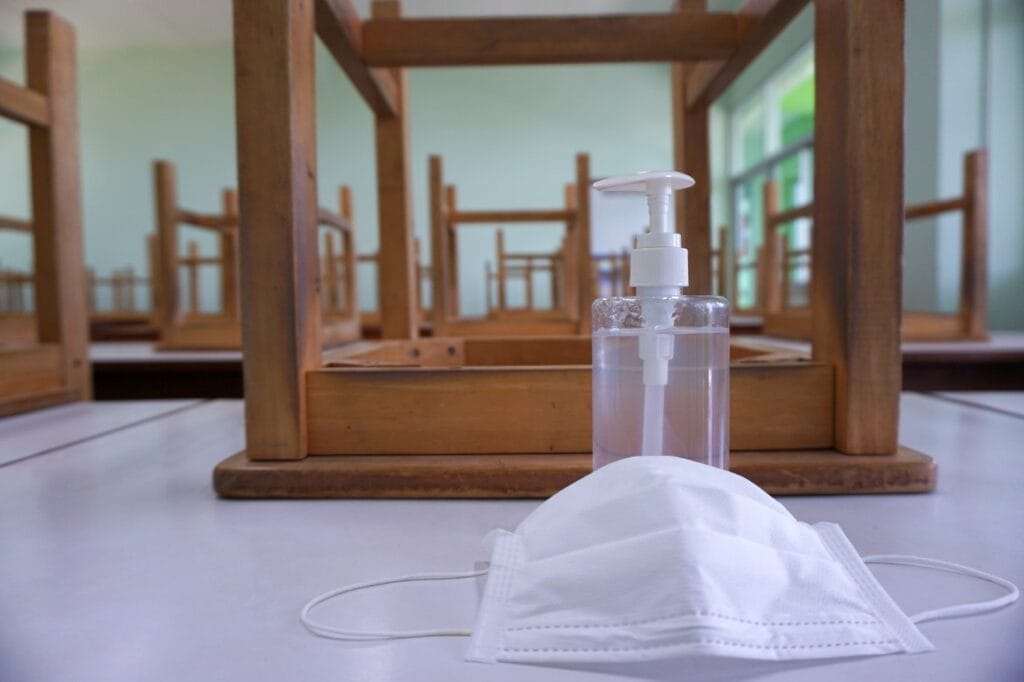So when will places like Madison and Milwaukee apologize?
The lasting damage to children from shutting down schools for month after uselessly virtual month during the pandemic is now so obvious that even the New York Times admits it.

That daily diary of gentry liberalism earlier this month led its readers out of the bunker with a few thousand words summing up reality, including the latest from oracles at Stanford and Harvard: “Extended school closures did not significantly stop the spread of Covid, while the academic harms for children have been large and long-lasting.”
To which any reasonable person would add: Let’s not do that again.
Researchers examined about 7,800 school districts in 41 states, Wisconsin among them. Districts that were mostly in-person starting in September 2020 saw kids in 3rd through 8th grade fall behind in math by about a third of a year. Districts that were mostly “virtual” or “remote” that school year saw kids fall behind by more than half a year.
“The longer schools were closed, the more students fell behind,” the Times’ authors wrote.
Take, for instance, Madison, which reopened in-person learning in spring 2021, one of the two last districts in Wisconsin to do so, and nearby Verona, open from the start of the school year. From 2019 to 2022, researchers found, Madison kids lost more than half a grade level in math. Verona kids gained a quarter grade. In the year since, from 2022 to 2023, Madison’s children have begun to recover, but Verona’s have pulled ahead at about five times Madison’s pace.
Districts vary according to many factors, researchers and the Times caution, but the pattern now is clear. The paper quoted an infectious disease specialist who helped write the American Academy of Pediatrics’ guidance on reopening schools: “We probably kept kids out of school longer than we should have,” he said.
And for what? The Times signals it’s now safe to wonder that, too, quoting an eminent Covid response doctor at a prominent hospital as saying that a consensus of respectable doctors has “generally agreed that school closures were not an important strategy in stemming the spread of Covid.”
As a result of a massive policy blunder, lots of kids are way behind, many are struggling ever to catch up, and this yielded no public benefit. What can you do?
Well, help kids catch up, and those studies suggest some ways. Hope it helps.
I think it’s also important to ask why those in command got this so wrong.
This was preventable. Two years ago, we knew that school lockdowns had vicious effects on Wisconsin children, who showed one the country’s highest rates of self-harm. News stories told of Milwaukee children who, imprisoned at home by government panic, thought of flinging themselves off buildings.
Two years before that — the summer of 2020, a few months into the pandemic, and before the start of that year of educational regression — the CDC knew that the virus presented low risk to children compared to the flu and said that in-person learning should resume. Researchers knew that children were unlikely to spread Covid. Researchers knew that teachers were not at significant risk, and researchers knew that protecting the vulnerable made more sense than closing schools.
Didn’t matter: Parents and independent schools had to go to court after Dane County tried locking down every classroom on the eve of the new school year. Teachers’ unions demanded that Gov. Tony Evers order schools closed; to his credit, he refused. It was much the same nationwide, and prominent national news outlets referred to opening the 2020-21 school year in person as if it were human sacrifice.
How, then, do we ensure the blunder isn’t repeated? It doesn’t have to be; lockdowns weren’t a normal part of epidemic response until this go-round.
May I suggest humility? We’ve said before that granting parents the power of school choice is a systemic way of humbling schools that can’t or won’t work for them. But institutions beyond schools failed children here, too, including the mass media’s commanding heights. What we need to hear out of them are the words that are the start of humility: apologies.
Apologies for playing to the ill-informed fears of the noisiest parts of social media. Apologies for treating the question of school reopening as one of “if Trump’s for it, it must be wrong.” Apologies for going along with a teachers’ union power play.
It’s not asking a lot. But if the Madison or Milwaukee school boards have said they’re sorry, I haven’t heard. The New York Times’ story includes no hint of contrition, just a mistakes-were-made message — so very close to what’s needed to start rebuilding trust, but not quite there.
Patrick McIlheran is the Director of Policy at the Badger Institute. Permission to reprint is granted as long as the author and Badger Institute are properly cited.
Submit a comment
"*" indicates required fields




